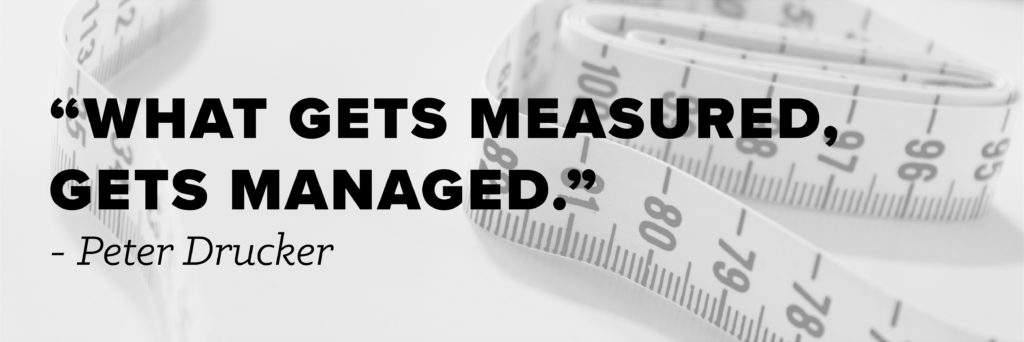Managing By Metrics: How To Measure Your Success
By Andrew Acker, chief operating officer at D. Bello Associates
There’s a classic quote that business leaders and managers love to throw around (and spoiler alert, I’m about too as well). It comes from Peter Drucker, one of the original management gurus. He classically states that “what gets measured gets managed.”

Before you roll your eyes and cringe from hearing this quote again, let me tell you that it’s most often taken out of context. It’s typically used as justification to eliminate measuring tasks that cannot easily be quantified. However, there’s a big difference between a business quote and the application to business.
The “business application” that Drucker was addressing was identifying the difficulty in measuring work and making sure the right work was getting done; right work being defined as work that contributes most directly to the bottom line.
The real challenge in business is identifying the tasks and activities that, when tracked, provide the greatest business insights and ROI possible. To further quote Drucker, “There is nothing so useless as doing efficiently that which should not be done at all.” Finding the appropriate measurement is hard work, and often executives apply simple concepts for complex decisions; utilizing models that include straight line metrics for everything from staff reductions, to increased sales, to expense reductions.
In an industry fueled by people with detailed expertise and extensive knowledge of the product and process, how do we blend that passion and knowledge with data and strategy to quickly evaluate our most profitable systems, processes, and products?
Data can’t be the final decision maker, but with so much time spent in front of a screen and in software applications, are we missing potential opportunities and threats by not better leveraging data points that are easily accessible? You think Customer X is so profitable, but do you know how much time it actually takes to complete their work? Do you know how rude and unprofessional the customer is to your employees and what this costs in production time? Do you know how happy your employees are at their jobs? Do you know your ‘compliance confidence score’?
In order to find the best answers, we first need to identify the right questions to ask and then we can effectively use data at our disposal to provide better insights and decision making.
